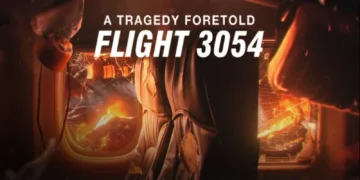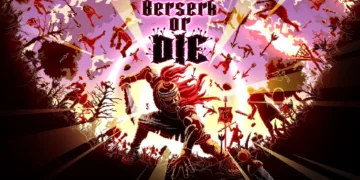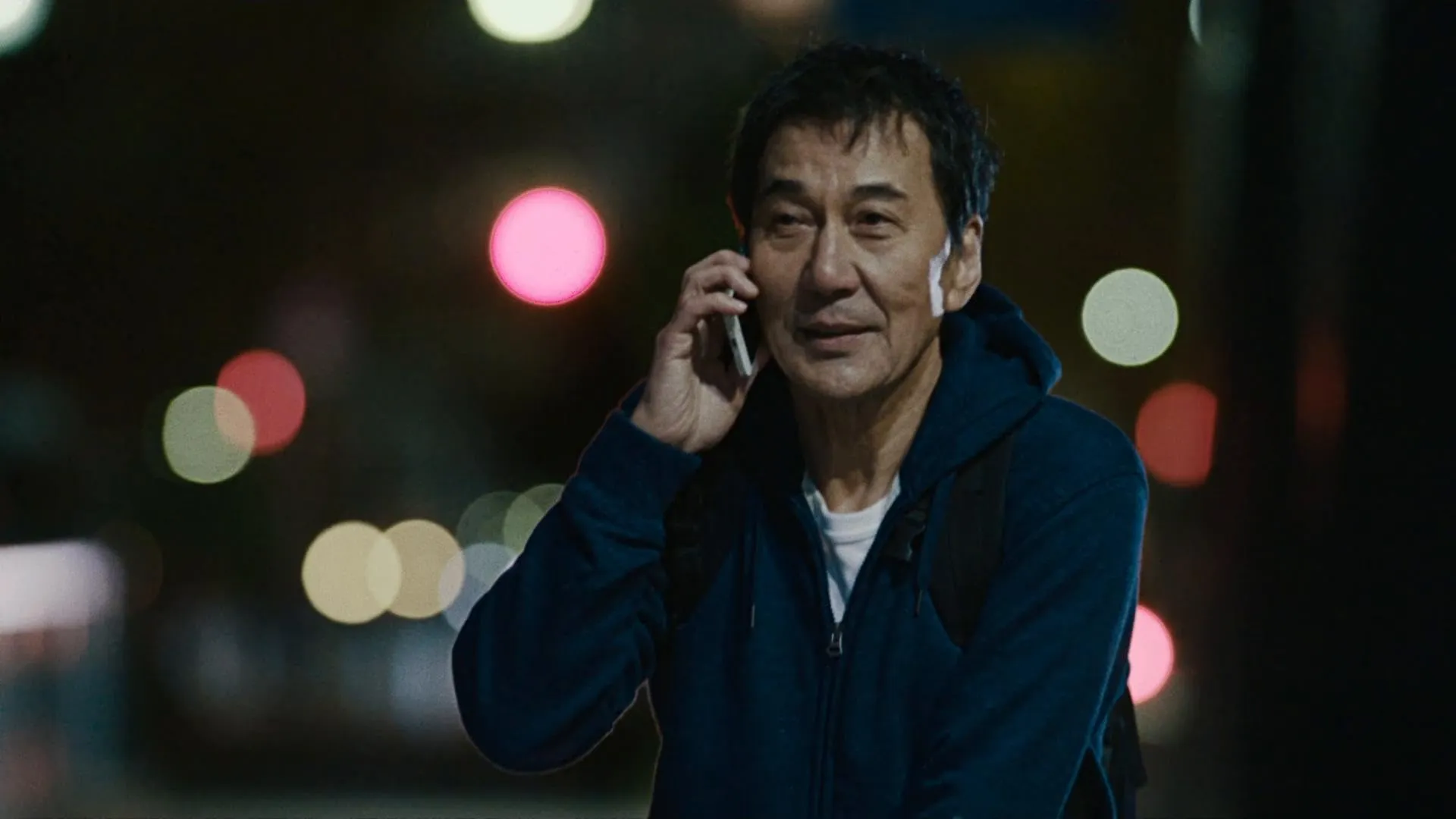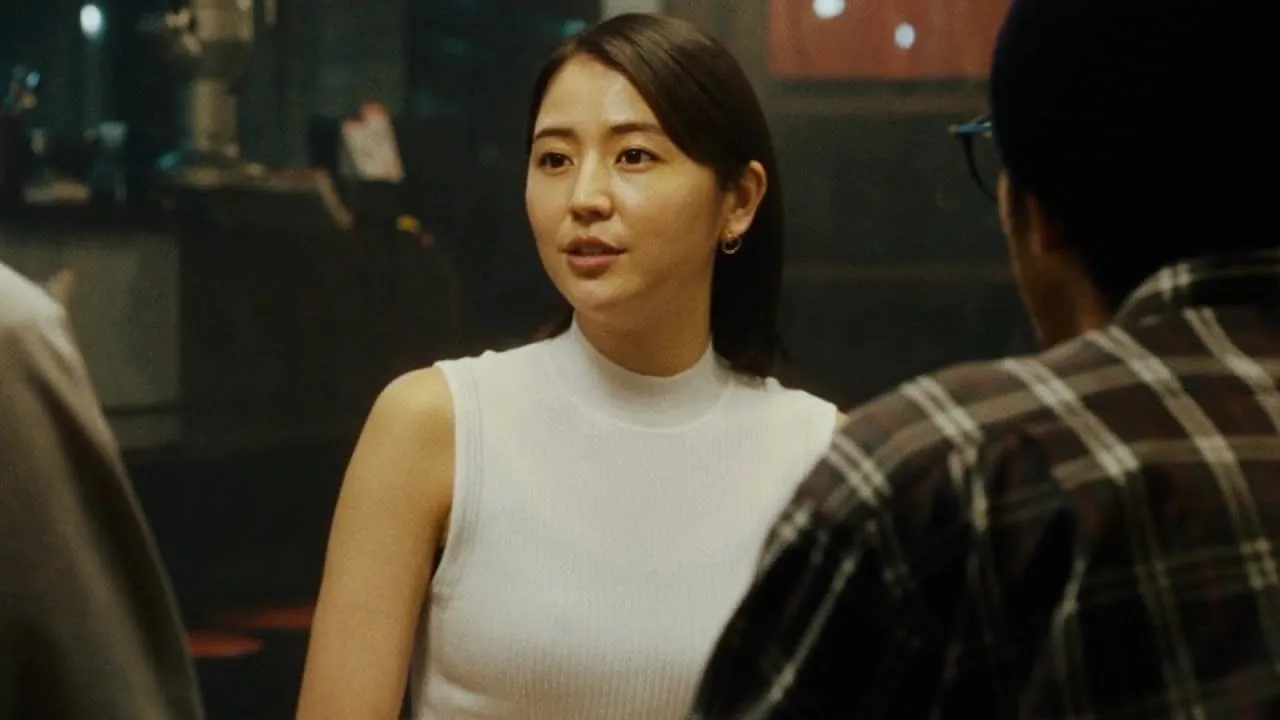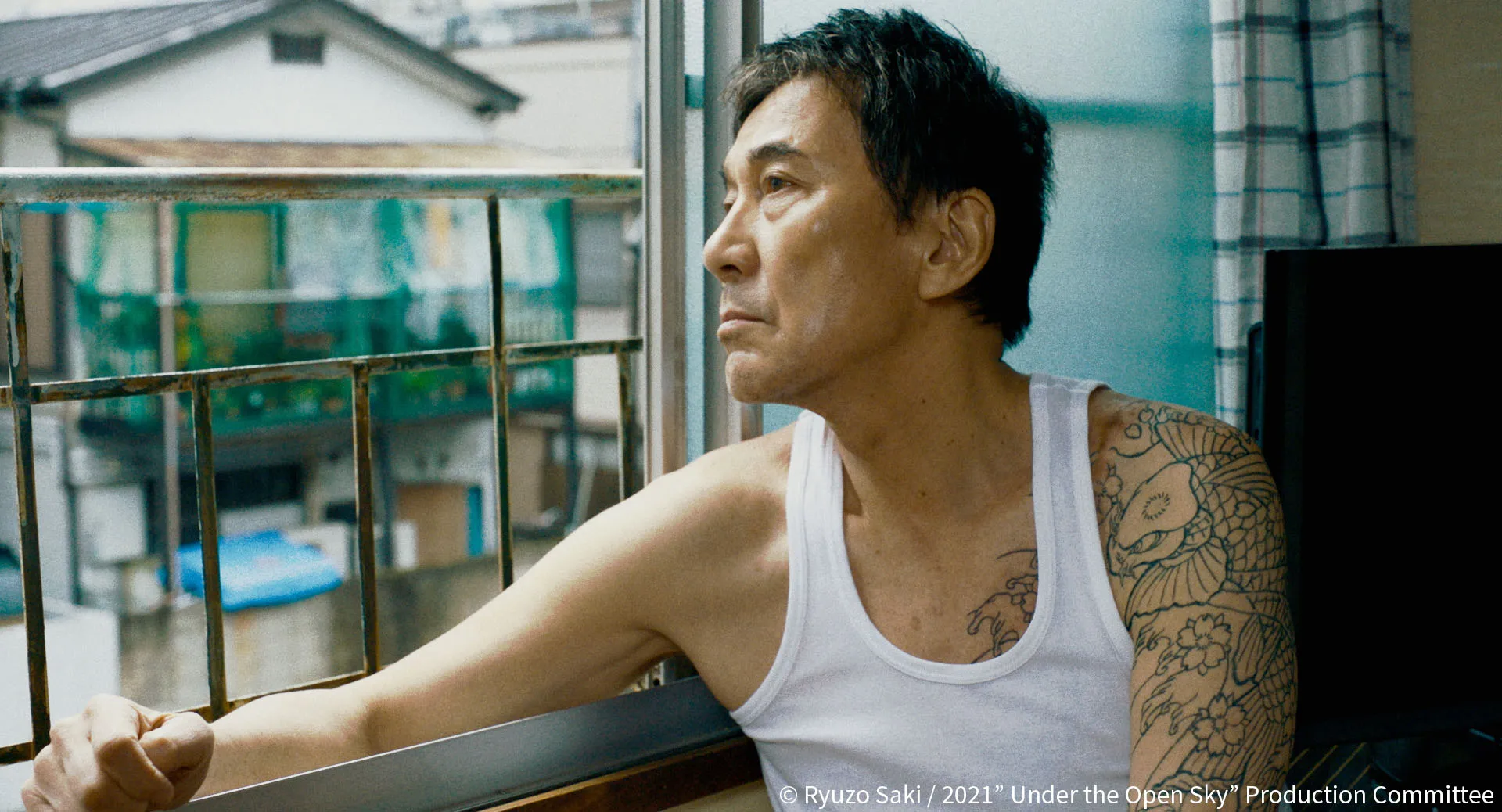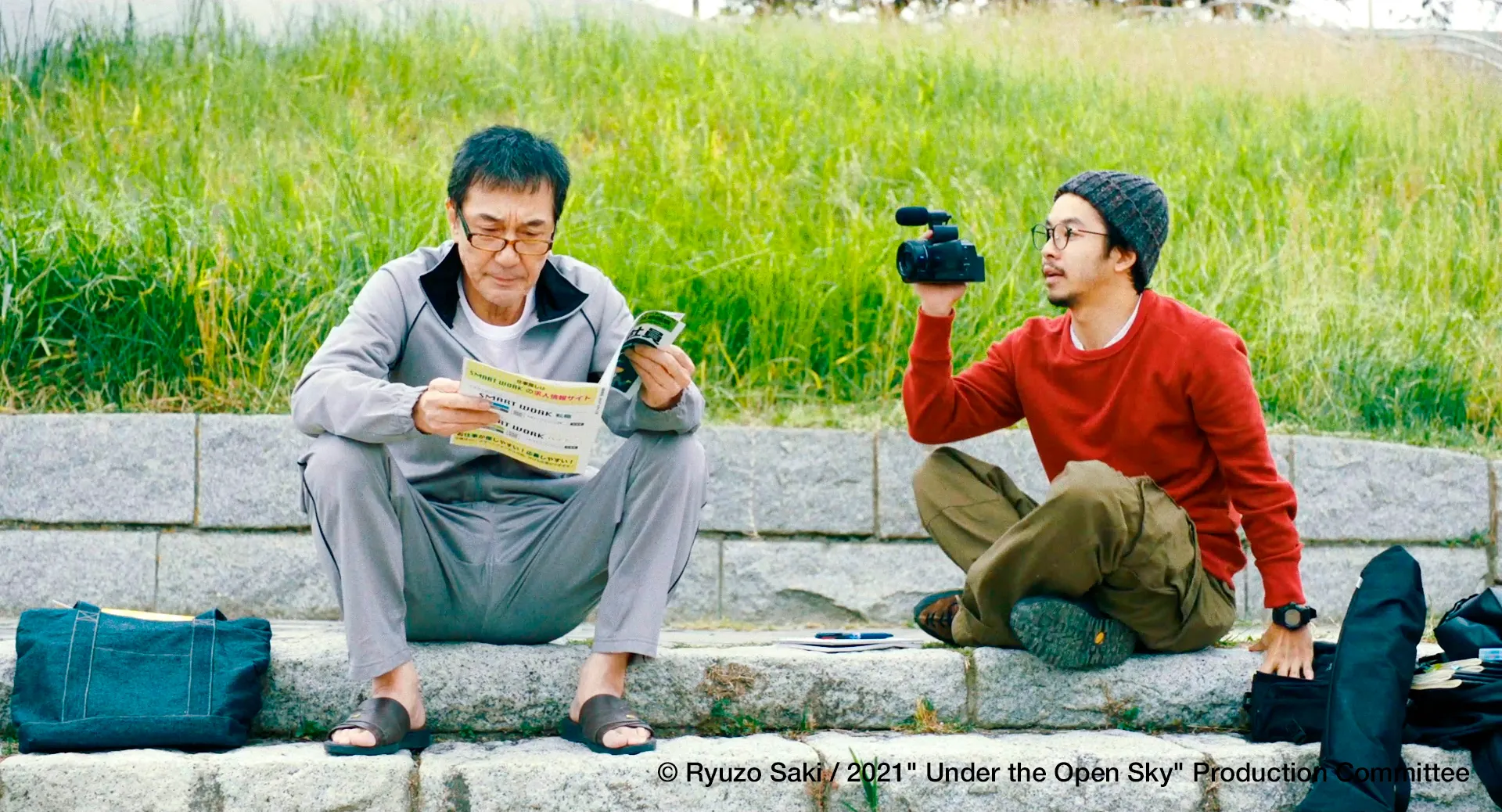Under the Open Sky by Miwa Nishikawa begins with a scene that paradoxically calls to mind both freedom and confinement in the cold winter setting of Hokkaido. After serving 13 years, Masao Mikami is released from Asahikawa Prison. Instead of feeling free, he feels like he is moving from one form of governmental control to another.
Winter in modern Japan is a physical and figurative framework, so the temporal setting is important. The snowy streets of Tokyo, where Mikami moves, reflect how cold and distant society can be toward people returning after being away.
The story focuses on four main parts: Mikami’s trying to fit back into a society that has changed while he was away, his search for his birth mother, his frustrating fight with government rules to get his driver’s license back, and his complicated connection with a TV crew filming his journey. Each thread serves as a lens through which Nishikawa studies how societal biases appear in institutional and personal settings.
Mikami forms unexpected alliances along the way with a supermarket manager, a TV director, and different social workers. Each relationship challenges Mikami’s presumptions and society’s prejudices. When he goes back to his home city of Kyushu, the story changes from one of reintegration to one of healing. He is forced to face his past and the fact that the yakuza world he knew is no longer relevant.
The Paradox of Honor: Mikami’s Journey Through Modern Japan
A man whose moral code comes from a bygone age of Japanese society is what we might call a “temporal refugee” in Masao Mikami. Mikami, played by Koji Yakusho, is a former Yakuza driver and enforcer. He is an interesting mix of a dangerous person who follows strict rules. His life story, from being raised in a hospital as a child to getting involved in organized crime, shows how society can push people away. Despite this, he still strongly understands what is fair and just.
Mikami is unlike the usual repentant criminal because he shows no fake regret. He views his past not as something to be ashamed of but as part of his history (the cuts on his Yakuza tattoos each have their own story). Ironically, his violent tendencies show up in moments of moral righteousness rather than criminal activity, such as attacking muggers who target the elderly. It’s like his sense of right and wrong is fine; different values just guide it.
Mikami’s internal conflict is more about dignity versus life than good versus evil. He doesn’t resist welfare help out of pride; he wants to avoid being seen as just another number in society. When he says, “At least I didn’t have to feel small in prison,” he’s not just joking; he’s criticizing a society that gives freedom but takes away dignity.
Mikami’s change is more about shifting his character than actually transforming it. He sticks to his core ideas but finds a way to share them in a way that modern Japan can understand. His increased trust in people (the supermarket manager and the TV director) isn’t a sign of a fundamental shift; rather, it’s a sign that his strict sense of honor is being expanded to include new kinds of loyalty. It’s more about using old skills in new ways rather than learning new ones.
The Weight of Freedom: Japan’s Social Prison and the Price of Redemption
The Open Sky portrays modern Japan as a paradoxical prison without walls due to its confusing bureaucracy and strict social rules. The film’s genius is turning everyday challenges, like getting a driver’s license, finding a place to live, and looking for a job, into a brutal critique of social recovery (or its strategic impossibility). The system’s kafka-esque machinery doesn’t just question ex-convicts; it quietly annihilates them through a thousand paper cuts of documentation and denial.
Think about the main error in the film: Mikami’s criminal history serves as a self-fulfilling promise despite being intended to protect society. Whenever he faces rejection, gets a strange look, or encounters red tape, he feels pushed toward the behavior that society claims to be afraid of. It’s what we might call the redemption paradox—the system wants redemption but also destroys every way to get there.
In modern Japan, the issue of belonging almost has an existential character. Mikami’s search for connection becomes a lens through which we examine our social contracts, especially poignant in a culture where group identity typically defines the individual. His patchwork family of understanding government workers, reformed skeptics, and other outsiders suggest a different social structure, one that is based on the relationships we choose rather than the jobs we are assigned.
What’s notable is that the film presents redemption not just as a personal journey but as something we all share responsibility for. When Mikami helps others despite his circumstances, it’s not just character growth; it’s a pointed commentary on who really lives by the ideals that society claims to uphold. The cost of conformity is high here: those who adhere to the rules the most slavishly frequently exhibit the least humanity. At the same time, our “reformed” criminal exemplifies the sensitivity society purports to value.
The film treats second chances with a uniquely Japanese perspective on common themes. In a culture where it’s important to understand feelings and keep peace, Mikami’s straightforward honesty is a big problem for him and a surprising way to build real connections with others.
Mirrors of Society: The Transformative Web of Human Connection
In building Mikami’s support network, Nishikawa shows what might be called a ‘redemption relay’—each character passing along their own small torch of understanding to illuminate the next character. The friendship with Tsunoda, the young TV director, serves as the film’s most complex example of reciprocal transformation.
What starts as professional exploitation (that oh-so-Japanese propensity to neatly package human struggle into television segments) becomes something much more nuanced: a cross-generational conversation about authenticity in an increasingly artificial world.
The film’s professional characters form an interesting spectrum of Japanese social archetypes, from the methodically helpful welfare worker to the initially suspicious supermarket manager. Every relationship tests the assumptions of both parties, creating what might be called “micro-revolutions” in social understanding. In such stories, the lawyer and welfare officer—usually portrayed as merely bureaucratic functionaries—emerge as complex people navigating their moral labyrinths.
Perhaps the most telling aspect of the story is that Mikami’s former Yakuza friends act as live cautionary tales about the cost of staying the same. Mikami sees his future as something he wants to avoid, shown through the image of people in retirement taking care of their gardens, which serves as a clever visual metaphor for domesticated criminality.
These ties can impact more than just personal growth. Every person influenced by Mikami becomes part of a larger network of understanding, questioning the biases in their groups. The store manager’s shift from blaming others to supporting them isn’t just a change in character; it’s a model for making positive changes in the community.
Visual Poetry of Confinement: Nishikawa’s Aesthetic Grammar
Thanks to Nishikawa’s directorial style, winter becomes a visual metaphor for Japan’s social permafrost, elevating it above mere seasonal background. What we might call the film’s “carceral aesthetic” is established by the opening scenes of snow falling through jail bars (a particularly inspired piece of visual poetry). This suggests that freedom and confinement exist not as opposites but as uneasy bedfellows.
The camera shows a quiet conversation between different places that initially seems easy to understand. Small spaces like homes, offices, and welfare centers are filmed in a way that makes them feel very close and cramped, making even empty rooms seem crowded. Outdoor scenes, especially those under the open sky, highlight empty spaces, creating a visual paradox where freedom takes on the form of isolation.
Nishikawa cleverly shows how the weather and surroundings reflect Mikami’s feelings. This is done in a way that feels real and not overly dramatic. The film’s jokes, which often come from silly rules and red tape, help balance out its more serious topics. These funny moments aren’t just meant to make you laugh; they are key to the film’s look at how strong people can be.
The careful use of flashbacks is impressive. They are not just used to give information but instead highlight emotions. When they do, they’re filtered through a visual language that implies the unreliability of memory – slightly too bright or sharp.
The Architecture of Authenticity: Yakusho’s Masterclass in Controlled Chaos
Koji Yakusho’s portrayal of Mikami achieves what might be called “calculated spontaneity” – a performance that is so carefully planned as to look completely spontaneous. His portrayal of the character is more than just the obvious signs of someone who has been in jail (like their unique walk and way of standing); he also captures something deeper: the lasting physical effects of confinement.
What’s impressive is how Yakusho shows danger without using typical tough-guy stereotypes. His Mikami experiences violence not as a tool but as a constant state—sometimes quiet, sometimes intense, but always there. His modulation of this underlying threat level becomes its form of social commentary: greatest when dealing with bureaucratic embarrassment, lowest when dealing with real human connection.
In what could be called ’emotional parkour,’ Yakusho navigates seemingly impossible transitions between vulnerability and strength. In a scene where Mikami practices his driving school responses in his small apartment, we see a mix of funny and sad moments that perfectly capture his character. His interactions with the supporting cast create moments of genuine awkwardness, making them almost documentary-like.
The performance’s true brilliance lies in its refusal to seek redemption through likeability. Yakusho maintains Mikami’s flaws, making viewers accept him as he is. This decision transforms the story from a simple recovery tale into a deeper social critique.
The Review
Under the Open Sky
The Open Sky goes beyond just telling a recovery story; it provides a sharp look at the social issues in modern Japan. The film transforms from a personal trip into a larger reflection on dignity, belonging, and the hollow promise of second chances, thanks to Yakusho's masterful performance and Nishikawa's precise direction. Despite its occasionally plodding pace, the film's unwavering honesty and refusal to provide simple answers elevate it above typical redemption stories. It's a piece that sticks with you, making you think about how we all play a role in social change.
PROS
- Koji Yakusho's nuanced, powerful performance
- Sophisticated exploration of social issues
- Masterful balance of drama and subtle humor
- Rich, layered symbolism
- Complex character relationships
CONS
- Occasionally meandering pace
- Some subplots feel underdeveloped
- Third act lacks narrative momentum






























